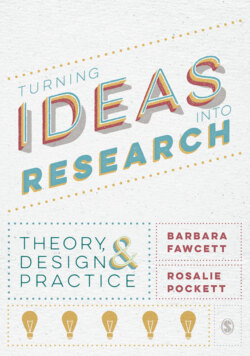Читать книгу Turning Ideas into Research - Barbara Fawcett - Страница 32
На сайте Литреса книга снята с продажи.
Concluding remarks
ОглавлениеThe process of thinking about a project from an ethical perspective is a fundamental activity that is integral to all research inquiry and not supplementary to it. Beginning from the accepted view that all research should be conducted ethically, we have briefly looked at the theoretical, historical and contextual positioning of ethical decision-making as a moral pursuit. We have examined contemporary understandings and perspectives, including the opportunities and constraints of formalized research ethics processes. In considering these ideas, we have undertaken a review of the developments in social research more generally; suffice to say that whilst these models are important for new researchers to understand, it is of equal importance to acknowledge that there can no longer be seen to be an absolute dichotomy between quantitative and qualitative methodologies or positivistically orientated and naturalistic paradigms. Critical theory, for example, has a place in post-positivism where mixed methods may be used and where forms of objectivity are still pursued, however qualified by the epistemological position of the researcher. These ideas will be explored in later chapters.
Inclusivity has been explored as a feature of contemporary approaches that challenge more privileged perspectives of the relationships between researchers, participants and epistemological positions. It is also suggested as a way forward in research ethics to counter well-intentioned but oppressively constructed research that may perpetuate systemic problems that the research is aiming to eliminate and the entrenched conceptualization of knowledge frames, towards a more emancipatory view.
